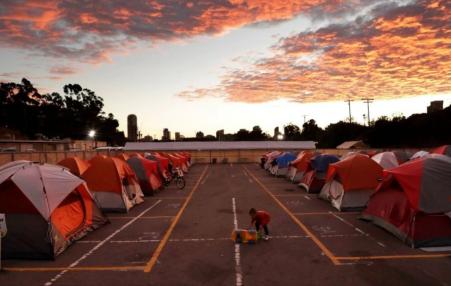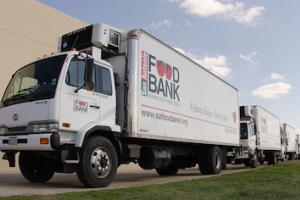Acts of Rebel Sanity
The Progressive
 U.N. study finds growing numbers of Americans are living in the most impoverished circumstances. The growth of extreme poverty in the land of plenty is an indicator that we shouldn't be talking about how to slash spending on social programs, but how to expand services and better meet the needs of the vulnerable among us. One and a half million American households live in extreme poverty today, nearly twice as many as 20 years ago.
U.N. study finds growing numbers of Americans are living in the most impoverished circumstances. The growth of extreme poverty in the land of plenty is an indicator that we shouldn't be talking about how to slash spending on social programs, but how to expand services and better meet the needs of the vulnerable among us. One and a half million American households live in extreme poverty today, nearly twice as many as 20 years ago.
 Reader Comments: The Life and Death of Daniel Berrigan; Gary Tyler Free After More Than 40 Years; Does an Inside-Outside Strategy Have a Chance? - The People's Summit; Sanders' Impact on Millennials; Digital history project - When Socialists Won Elections; Get Cops Out of Schools; What's the Israeli Army Afraid Of? - Tair Kaminer Fights On;
Italian Court Rules Food Theft 'Not a Crime' If Hungry; Rolling Stones to Trump: Stop Using Their Songs at Campaign Events
Reader Comments: The Life and Death of Daniel Berrigan; Gary Tyler Free After More Than 40 Years; Does an Inside-Outside Strategy Have a Chance? - The People's Summit; Sanders' Impact on Millennials; Digital history project - When Socialists Won Elections; Get Cops Out of Schools; What's the Israeli Army Afraid Of? - Tair Kaminer Fights On;
Italian Court Rules Food Theft 'Not a Crime' If Hungry; Rolling Stones to Trump: Stop Using Their Songs at Campaign Events
 According to a new report, roughly 1 million of the nation’s poorest people will be cut off the Supplemental Nutrition Assistance Program (SNAP) over the course of 2016, as states move to limit food stamp benefits for unemployed adults who aren’t disabled or raising minor children. These individuals, most of whom don’t qualify for other help, will lose their food assistance benefits after three months regardless of how hard they are looking for work.
According to a new report, roughly 1 million of the nation’s poorest people will be cut off the Supplemental Nutrition Assistance Program (SNAP) over the course of 2016, as states move to limit food stamp benefits for unemployed adults who aren’t disabled or raising minor children. These individuals, most of whom don’t qualify for other help, will lose their food assistance benefits after three months regardless of how hard they are looking for work.
Spread the word